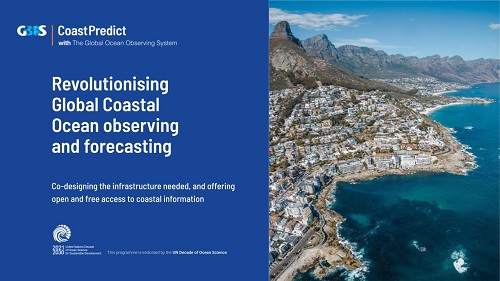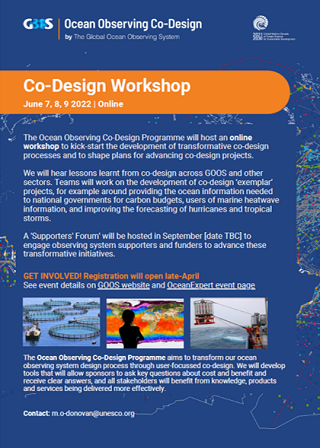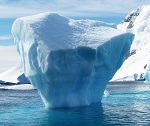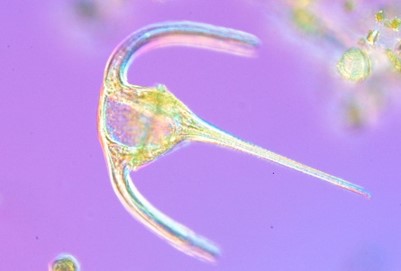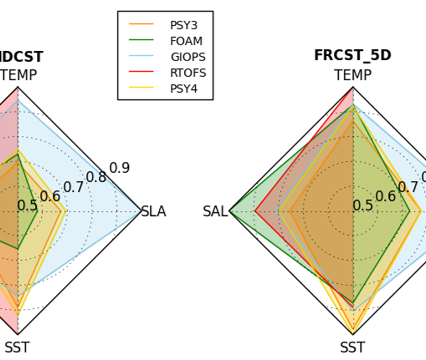Newsletter May 2022
You can download this newsletter-2 as pdf
 Newsletter 2
Newsletter 2
May 2022

New OceanPredict “Operational Systems Working Group”
The new working group is called the OPOS-WG and will provide a platform for exchange and interaction for all the operational ocean forecasting systems represented in OceanPredict. The WG already had several meetings to discuss new activities, including working closely with Ocean Best Practices and ETOOFS, expanding OceanPredict’s engagement at international level, and launching a new webinar series. The group is chaired by David Ford (Met Office) and Fraser Davidson (DFO/ECCC). The operational ocean forecasting systems represented in the group have been members of OceanPredict for several years, and now are getting organised to form a more functional and targeted community.
Information about the OPOS-WG is available on the OP website at https://oceanpredict.org/teams/national-systems-working-group/.
Content
- UN Decade Programme News
- OP Task Team News
- OP Operational Ocean Forecasting System News
- General OP News
- Events (recent and upcoming)
- Contact
News from ForeSea, SynObs, CoastPredict and ObsCoDe
OceanPredict support for the Decade and interaction with UN Decade programmes and project are progressing. More targeted collaborations with partner programmes are emerging and plans for joint activities are beginning to take shape.
ForeSea
ForeSea’s vision is for strong international coordination and community building of an ocean prediction capacity for the future. The overarching goals are to (1) improve the science, capacity, efficacy, use, and impact of ocean prediction systems and (2) build a seamless ocean information value chain, from observations to end users, for economic and societal benefit. These transformative goals aim to make ocean prediction science more impactful and relevant. ForeSea has received five project submissions to the latest Calls for Decade Actions and is currently assessing their suitability for endorsement by the Ocean Decade and their fit within ForeSea.
SynObs
SynObs, the Synergistic Observing Network for Ocean Prediction is proposed as a common comprehensive UN Decade project among the three UN Decade programmes, ForeSea, CoastPredict, and Ocean Observing Co-Design. SynObs seeks to extract maximum benefit for ocean and coastal predictions through combining various observation platforms, typically between satellite and in situ observation data or between coastal and open ocean platforms. SynObs aims to identify the optimal combination of different ocean observation platforms through observing system design/evaluation, and to develop assimilation methods with which we can draw synergistic effects from the combination.
CoastPredict
CoastPredict is one of three GOOS Ocean Decade Programmes (besides CoastPredict, the GOOS UN Decade programmes includes ObsCoDe and Observing Together), that share the vision of a co-designed, integrated observing and forecasting system, linking the coastal and open ocean.
CoastPredict is developing core projects under six focus areas to optimise capability and capacity for integrated coastal forecasting, and to enhance service delivery. Amongst priorities, projects will address the need for calibrated, relocatable climate downscaling to add coastal resolution to IPCC climate scenarios and improve projections of ecosystem impacts at local scales. CoastPredict will consolidate standards and best practices to replicate integrated forecasting systems as part of a truly global ocean observing system.
ObsCoDe
GOOS’s Ocean Observing Co-Design Programme aims to transform ocean observing system assessment and co-design processes by working with experts in observations, modelling and forecasting, and with key user stakeholders, to develop tools and best practice. The processes must be developed collaboratively with modelling and observing communities to enable co-design of an integrated and responsive ocean observing system. Co-design will be piloted through Exemplar areas, a key to which will be identification and engagement of end-users and understanding of their needs.
The OceanPredict community is warmly invited to take part in the virtual Co-Design Workshop on 7, 8, 9 June 2022.
— Registration is now open (until 19 May 2022). —
OP Task Teams

OceanPredict contributes to the development of new science capabilities through active working groups, called the OP Task Teams (or TTs). OceanPredict currently operates six different task teams, which are all working in exiting science areas, complementing each other. They collaborate and reach out to external science and research communities, linking OceanPredict into an international ocean science landscape:
- Coastal Ocean and Shelf Seas TT (Villy Kourafalou, University of Miami/RSMAS and Pierre De Mey-Frémaux, CNRS/LEGOS)
- Coupled Prediction TT (Chris Harris, Met Office, Santha Akella, NASA, Kristina Mogensen, ECMWF)
- Data Assimilation TT (Matt Martin, Met Office and Andy Moore, UCSC)
- Intercomparison and Validation TT (Fabrice Hernandez, IRD and Greg Smith, ECCC)
- Marine Ecosystem Analysis and Prediction TT (Katja Fennel, Dalhousie University and Stefano Ciavatta, PML)
- Observing System Evaluation TT (Elisabeth Remy, Mercator Ocean International and Yosuke Fujii, MRI/JMA)
Brief updates of current activities in the CP-TT, MEAP-TT and IV-TT
knowledge and information across different OceanPredict Systems and task team member organization. A quarterly lecture series is also planned and would start sometime around May 2022. CP-TT will support and co-organize a workshop with OSEval-TT around Nov 2022.
(Santha Akella, Kristian Mogensen and Chris Harris, CP-TT co-chairs)
MEAP-TT: After serving as MEAP-TT co-chair since 2014, Katja Fennel has stepped down from this role. Marjy Friedrichs from the Virginia Institute of Marine Science has agreed to become the new co-chair of the MEAP-TT, serving together with Stefano Ciavatta. MEAP-TT got fully involved in the OceanPredict initiatives for the UN Decade of Ocean Science, with the co-chairs joining
the steering committee of the ForeSea Programme and SynObs project. The team co-authored to the Biogeochemical Modelling chapter of the ETOOFS’ Guide to Operational Oceanography and Forecasting Systems which is to be launched at the UN Ocean Conference in Lisbon in June. The next video-meeting of the MEAP-TT is scheduled for May 2022.
(Stefano Ciavatta and Marjy Friedrichs, MEAP-TT co-chairs)
projects in support of the UN Decade of Ocean Science, including working closely with the other OceanPredict task teams, providing reliable guidance on systematic errors and model improvements to the operational oceanography expert community and end-users, and propose, promote and re-visit metrics and standards with bodies in charge of routine evaluation.
(Fabrice Hernandez and Greg Smith, IV-TT co-chairs)
OP Systems
The current operational forecasting systems linked to OceanPredict range from basin-scale to global coverage and from low to eddy-resolving resolutions. Most of the systems assimilate real-time observations and provide daily short-term forecast. Their products are available through web services.
Latest news from 4 of the OceanPredict operational systems (more online)
UK/Europe: The European Centre for Medium-Range Weather Forecasts (ECMWF) uses the NEMO ocean model to produce coupled forecasts for time ranges from medium-range (15 days) to over extended range (62 days) to seasonal range (up to 13 months). To generate ocean initial conditions, we use the NEMOVAR variational data assimilation system.
Current ocean modelling and data assimilation activities are focused on upgrading the NEMO model version from V3.4 to V4.0 and upgrading the NEMOVAR system to a more recent version. It is expected that a new ocean reanalysis will be available in 2023 with an upgrade of the coupled modelling systems expected in 2024.
(Kristian Mogensen, ECMWF)
Norway: New Arctic Biogeochemical forecast at 6 km resolution: Since May 2021, daily biogeochemical forecasts for the Arctic are provided using the ECOSMO II model, coupled to the HYCOM v2.2.98 at 6km resolution and 50 vertical layers. The 10-days forecasts are initialized every day and assimilate satellite ocean colour data.
New extension of the stand-alone neXtSIM-F forecasts: Since Dec 2021, the stand-alone sea ice forecast model neXtSIM-F has had an extended domain: it covers the Arctic and now the Canadian Archipelago. The neXtSIM-F model provides 7-days forecast updated every day. Both the ECOSMO-II and neXSIM-F forecasts are available through the Copernicus Marine Services (search for ECOSMO or neXtSIM).
(Laurent Bertino, NERSC)
China: NMEFC’s global ocean forecasting system based on NEMO with 1/12 degree horizontal resolution has been operational for 2 years and can provide temperature, salinity, currents, sea surface height products. Global reanalysis system has been set-up by NMDIS with 1/12 degree horizontal resolution and covering 1989-2020.
In 2021, Indian Ocean sub-system based on NEMO (v4.0) is updated to 1/24 degree horizontal resolution and in the quasi-operational stage. For the Northwest Pacific Ocean sub-system, a 10km-grid, 5day SST forecast is developed by using the ConvLSTM deep learning method; with meteorological forecasting data and SST remote sensing observation, the average absolute error of 24-hour for the SST predictions from intelligent forecasting system is less than 0.2 ℃.
(Guimei Liu/Dakui Wang, NEMFC)
Brazil: The Brazilian Oceanographic Modeling and Observation Network (REMO) developed a short-range operational ocean forecasting system for the Atlantic Ocean, which has been upgraded since its implementation in 2010. The system, hosted by the Brazilian Navy Hydrography Center (CHM), comprises the REMO Ocean Data Assimilation System (RODAS),
based on EnOI, and HYCOM nested grids forced by NCEP/NOAA GFS and CHM COSMO forecasts. RODAS assimilates along-track sea level anomalies from AVISO, sea surface temperature analyses from the UK MetOffice OSTIA and Argo T/S profiles. Today, efforts are underway to construct an EnKF and to assimilate SWOT altimetry data.
(Clemente Tanajura, UFBA/REMO)
General OP News
- OceanPredict strategy and governance – the OP governance discussion is continuing as many new players are entering OceanPredict interactions and collaborations. With the arrival of UN Decade programmes and projects and a new working group, OceanPredict is expanding, with governance and leadership needing to be revisited.
- OceanPredict office collaborations with G7/FSOI and GEO Blue Planet are continuing – in future closer collaboration of the OceanPredict office with the Decade Collaboration Centre for ocean prediction (DCC-OP) as well as ForeSea and SynObs are expected.
- Some website updates
- The latest update on the use of observations in operational systems is now available online
- The OP Publication list has been updated recently and can be viewed on the website.
- Newsletter pages are now in place to provide links to all OP information
Recent and Upcoming OP events
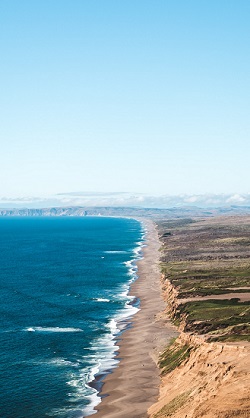
OS-Eval/CP-TT and SynObs launch workshop planning meeting (27 April 2022) addressed the organisation of the joint OS-Eval TT/CP-TT workshop in Japan in Nov 2022. It is planned to open registration and abstract submission in late June 2022.
SynObs Steering Committee meeting (26 April 2022) was the second meeting of the new Synergistic Observing Network for Ocean Prediction (SynObs) Steering Committee.
OPOS-1 meeting (20 April 2022) was the first official meeting of the new OP Operational Systems working group.
COSS-TT International Coordination meeting (12&13 April 2022) was the 8th meeting of the Coastal Ocean and Shelf Seas Task Team, and despite being virtual attracted strong interest.
The latest DA-TT technical seminar series (3) (14 March 2022) showed a presentation by Anthony Weaver (Cerfacs) on “A scale-dependent hybrid background error covariance model for ocean DA”. Information is available on request.
The 6th OceanPredict Science Team (OPST-6) will take place on 15-17 June 2022 as a virtual event. The focus will be on the latest OP activities and achievements, specifically those linked to the UN Decade.
A joint EuroSea/OceanPredict hybrid workshop will take place on 29 Jun-1 Jul at the Met Office. This workshop will provide an opportunity for the large EU funded project EuroSea to engage with OP task teams and the wider OP community to explore opportunities of how ocean prediction and observing system co-design can be mutual beneficial. Registration is now open. Abstract submission will close on May the 4th.
Upcoming international events
Upcoming event in 2022:
| May 2022 | June/July 2022 | October 2022 |
|---|---|---|
| Digital Twins Ocean Summit, 4+5 May 2022, London, UK, in-person, by invitation, includes several satellite events
EuroSea Annual Meeting, 9-13 May 2022, hybrid, Cadiz, Spain, by invitation |
Ocean Decade Co-Design (virtual) Workshop on June 7, 8 and 9.
EuroSea/OceanPredict Workshop on Ocean prediction and observing co-design, 29-Jun-1 Jul 2022, Met Office, UK, hybrid, open 2022 UN Ocean Conference, 27 Jun – 1 Jul 2022, Lisbon, Portugal, in-person, open |
6th OBPS (Ocean Best Practice) Workshop, virtual, 6-19 Oct 2022:
Plenaries on 5, 6, and 19 October 2022 (each three hours long). Working Group sessions will meet in between, at times of their own choosing. |
Events organised in other communities relevant for OceanPredict:
Contact
OceanPredict Programme Office Follow us on Twitter or Sign up with OceanPredict
Met Office
FitzRoy Road
Exeter, EX1 3PB
United Kingdom

